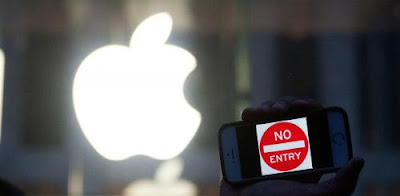Government attacks on the encryption of online communication threaten human rights around the world, warned Amnesty International in a briefing published today as tech giant Apple challenges the US Federal Bureau of Investigation (FBI) in court over an order to provide software to bypass iPhone encryption.
The briefing, Encryption: A Matter of Human Rights, which is Amnesty International’s first official stance on encryption and human rights, says that people everywhere should be able to encrypt their communications and personal data as an essential protection of their rights to privacy and free speech.
“At stake in the Apple case is whether a future administration could exploit the next national moment of crisis, and use its access to our phones to target journalists, or persecute activists and minorities, said Naureen Shah, director of security and human rights at Amnesty International USA.
“Encryption is a basic prerequisite for privacy and free speech in the digital age. Banning encryption is like banning envelopes and curtains. It takes away a basic tool for keeping your private life private,” said Sherif Elsayed-Ali, Amnesty International’s Deputy Director for Global Issues.
“Governments trying to undermine encryption should think twice before they open this Pandora’s Box. Weakening privacy online could have disastrous consequences for free societies, particularly for the human rights activists and journalists who hold our leaders to account.”
Demanding ‘backdoors’ can violate human rights
The briefing warns against attempts to make companies create a “backdoor” in encryption software. It says these measures violate international human rights law, because they indiscriminately undermine the security of the communications and private data of anyone using the software.
Read More: http://www.amnestyusa.org/research/reports/encryption-a-matter-of-human-rights
The briefing, Encryption: A Matter of Human Rights, which is Amnesty International’s first official stance on encryption and human rights, says that people everywhere should be able to encrypt their communications and personal data as an essential protection of their rights to privacy and free speech.
“At stake in the Apple case is whether a future administration could exploit the next national moment of crisis, and use its access to our phones to target journalists, or persecute activists and minorities, said Naureen Shah, director of security and human rights at Amnesty International USA.
“Encryption is a basic prerequisite for privacy and free speech in the digital age. Banning encryption is like banning envelopes and curtains. It takes away a basic tool for keeping your private life private,” said Sherif Elsayed-Ali, Amnesty International’s Deputy Director for Global Issues.
“Governments trying to undermine encryption should think twice before they open this Pandora’s Box. Weakening privacy online could have disastrous consequences for free societies, particularly for the human rights activists and journalists who hold our leaders to account.”
Demanding ‘backdoors’ can violate human rights
The briefing warns against attempts to make companies create a “backdoor” in encryption software. It says these measures violate international human rights law, because they indiscriminately undermine the security of the communications and private data of anyone using the software.
Read More: http://www.amnestyusa.org/research/reports/encryption-a-matter-of-human-rights

No comments:
Post a Comment